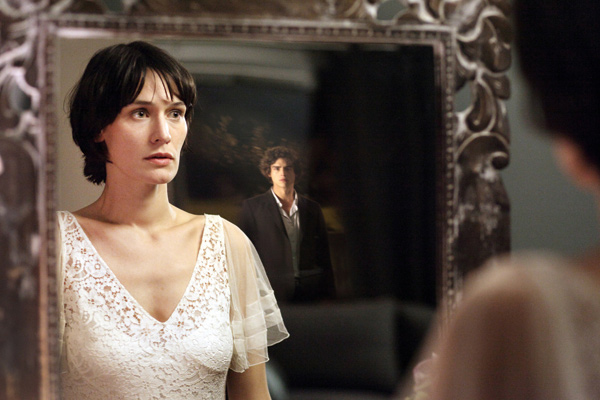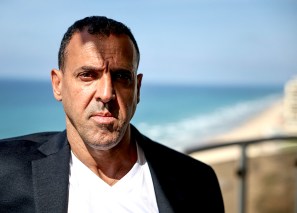With the possible exception of Game of Thrones, The Returned (Channel 4, Sunday) is the best series you will see on TV all year. I caught some early previews about a month ago when I was on The Review Show (BBC4). Normally the reviewers don’t agree on much but on this we were unanimous: we all felt like newly made addicts who’d been introduced to the finest, purest heroin — only to be suddenly denied our next fix. When was the rest of the series going to be broadcast? When? WHEN?
Well, now, finally it has made it on to Channel 4 and I hope you’ll all be as hooked as I am. It has been variously billed as a zombie thriller and a successor to Twin Peaks, but neither does justice to its intelligence, subtlety and eerie beauty. Rather, I’d say, the closer analogies are the first series of Six Feet Under (when it couldn’t put a foot wrong) and Tomas Alfredson’s haunting take on the vampire genre Let the Right One In. (And, if those references mean nothing to you, there’s another couple of must-sees to add to your catch-up list.)
Why are the dead coming back? Are they going to behave nicely or will they suddenly go bad?
The Returned — Les Revenants — was made in France in the mountain town of Annecy (where that unfortunate Iraqi/British family were mysteriously murdered by the hitman), and part of its allure lies in its creepy sense of place: like the remote hotel where Jack Nicholson goes mad in The Shining, you feel that almost anything could happen here. There’s a huge dam, perfect for committing suicide off; it’s approached by precipitous winding roads over the edge of which a coachload of boisterous schoolchildren could so easily plummet to their deaths.
Sure enough, we find ourselves in town four years after the coach tragedy. The parents of the lost kids still meet regularly in a self-help group: some are sarcastic, bitter and resentful; some are philosophical; some have ended up swapping partners; all in their different ways are doing their best to ‘move on’.
Then into their midst comes a bombshell in the form of Camille, an enchanting girl in her very early teens who turns up at her home feeling very peckish. What’s odd about this is that Camille is one of the kids who died.
Camille’s family’s response is beautifully observed. Mum reacts as any mum would — hastily clearing away all the indications in her daughter’s old bedroom that it has been kept as a shrine, treating her not as you would a zombie, but as a loved, vulnerable teenager in need of comfort. Twin sister Lena, on the other hand, is utterly freaked. Yes, Camille may seem just like the old Camille — she even knows how to replicate the knocking code they used to use to communicate with one another on their bedrooms’ dividing wall. But how dare Camille come into their lives expecting to be treated as if nothing had changed! Then, of course, there’s the problem of mum’s new, live-in boyfriend — a fellow grieving parent for whom she’s chucked in Camille’s dad Jérôme. How do you explain that development to poor Camille, who, as far as she’s concerned, was only gone ten minutes, and now everyone she knows is four years older and acting really strange…
All over town, similar scenes are being played out, the living and the newly undead responding in their own peculiar ways: elderly M. Costa, on re-encountering his much-younger dead wife, burns his house down with her in it, then throws himself off the dam; Adèle thinks she must be hallucinating and wishes her boyfriend (a handsome young man who died leaving her at the altar with her now ten-year-old daughter) would just disappear; and that serial killer who has just stabbed the barmaid to death — what’s that all about? And as for the pale, spooky little boy…
One of the main things that will keep us watching, clearly, in the coming weeks is our need to see how successfully it deals with all these unanswered questions. Why are the dead coming back? Are they going to behave nicely or will they suddenly go bad? How come, when the sapeurs-pompiers cleared the burned-out wreckage of M. Costa’s house, they found no body?
But even without the supernatural zombie-thriller element, the whole thing is so beautifully acted, so lyrical and arresting in the way it has been directed and shot (that scene where the pinned butterfly suddenly bursts forth from its glass display cabinet), and scored with such a smoulderingly melancholy, brooding soundtrack by the Glaswegian post-rock band Mogwaithat you’d stick with it just for thesheer style and atmosphere and moodily poetic otherworldliness. Well, I would, anyway.







Comments